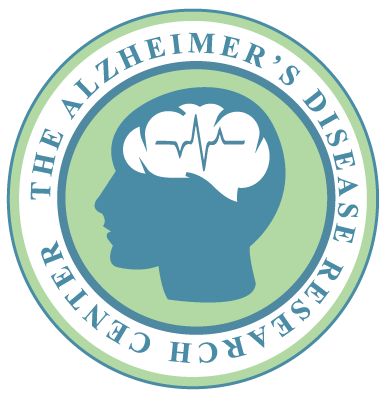Since 1977, Dr. Holub’s Research Office continues to move forward in the development of potential new treatments for Alzheimer’s disease. Dr. Holub emphasizes the lifestyle behaviors in which all people may engage in order to improve both their physical and mental well-being as they age. These lifestyle choices may also prove beneficial to those people who are already afflicted with Alzheimer’s disease in that they may potentially slow the progression of the disease.
The eight lifestyle choices/behaviors that Dr. Holub recommends for better brain health as one ages are:
- Regular physical exercise ~ for some of us, this may mean a gym membership or structured exercise classes like Yoga or Pilates. Others may choose to take vigorous walks, bicycle, cross country ski, ice skate, or even just do yardwork or house cleaning at home. Regular activities at the home are helpful in and of themselves and while cardiac level exercise may be beneficial, it is not required to benefit cognitive functioning.
- Keeping the left language brain busy with activities that the individual might enjoy, such as crossword puzzles, word searches/games, Sudoku and reading is important. Other activities such as seeing a movie or play and then having a meaningful discussion regarding what was seen serve to stimulate both memory and cognition.
- Right brain activity is also recommended and these activities may include art, music, hobbies and crafts. These principally right brain, non-language activities, further stimulate the nervous system and lead to improved well-being and may even explain why one identical twin does not appear to develop Alzheimer’s disease when the other identical twin has already contracted the illness.
- Socialization ~ it is important to remain socially active and engaged wherever and whenever one can in a variety of settings that the individual enjoys. Significant social interactions with family members, colleagues, friends from long ago school days, clubs, committees, community groups of the like all provide mental stimulation as well as a lingering sense of well-being after the interaction that may even last for weeks.
- Diet is also very important. A low fat, low cholesterol, preferably Mediterranean, diet is recommended. This is equivalent to a healthy cardiac and, in fact, neurologists will often use the phrase “what is good for the heart is good for the brain.” The Mediterranean diet is based on the traditional foods that people used to eat in countries like Italy and Greece back around the year 1960. Researchers noted that these people were exceptionally healthy compared to Americans and had a low risk of many deadly diseases. Numerous studies have now shown that the Mediterranean diet can both result in weight loss and help prevent many significant health issues including heart attacks, strokes, cognitive impairment, type 2 diabetes and premature death.
There is no one “correct” way to keep to this diet. Many countries encircle the Mediterranean Sea and the people living in these countries don’t all eat exactly the same things and so because there is such variety from country to country, there is some controversy over precisely which foods belong in this diet. However, it is widely accepted that the diet should be high in plant foods and low in animal foods. In general, the following types of foods and frequency of consumption are recommended:
- Vegetables, fruits, nuts, seeds, legumes, potatoes, whole grains, herbs, spices, fish and seafood (at least 2 times per week) and olive oil should comprise the largest part of the diet.
- Cheese, yogurt, eggs and poultry should be consumed in moderation.
- Red meat should be consumed only infrequently and in small portions.
- The primary beverage on this diet should be water. Coffee and tea are also acceptable, but sugar sweetened beverages and fruit juices, which are very high in sugar content, should be avoided. A moderate amount of red wine, one glass per day, is generally acceptable for those who do not have any issues with alcohol abuse and those who are not pregnant or nursing.
- It is equally important, in observing this diet, to avoid a number of other unhealthy foods and ingredients, such as:
- Added Sugar ~ soda, candies, ice cream, table sugar, pastries…
- Processed meats ~ bacon, hot dogs, sausages…
- Refined oils ~ canola, cottonseed, soybean…
- Trans fats ~ found in most margarines, many peanut butters and a wide variety of other processed foods
- Refined grains ~ white bread, hot dog and hamburger rolls, croissants, doughnuts, pastas made with refined wheat…
- Highly processed foods ~ basically all foods labeled “low fat” or “diet” or food that looks like it came from a factory, as in many snack foods
- Sleep ~ multiple new studies suggest that lack of sleep or waking up several times during the night may be bad for the brain and may increase the risk for Alzheimer’s disease. These findings are significant. Insufficient and/or poor quality sleep are common among the elderly, but just because one doesn’t sleep well doesn’t mean that he/she is destined to get Alzheimer’s disease. Sleep disturbances can be treated and healthy patterns to promote an improved quality of sleep can be established. A sound night’s sleep is an integral part of a healthy lifestyle and may even help to hold dementia at bay. Researchers also say that there is a preferred sleep position for brain health.
Additionally, researchers have recently indicated in the Journal of Neuroscience that the body’s position during sleep is also important and plays a role in brain health. The study compared how efficiently the brains of mice were able to remove waste when the mice were forced to sleep on their stomachs, their backs and their sides. MRI scans were used to look at the glymphatic pathway (the system that rids the brain of harmful chemicals and bad buildup) and illustrate how well the system functioned in relation to each of the three sleep positions. Tau proteins and beta amyloid are major components of brain waste and they are frequently associated with the tangles and plaques common in those afflicted with Alzheimer’s disease.
Results indicated that sleeping on one’s side is the preferred position. Interestingly, this position is the most prevalent in humans and also most animals. “…It appears that we have adapted the lateral sleep position to most efficiently clear our brain of the metabolic waste products that build up while we are awake,” said University of Rochester researcher Maiken Nedergaard. Estimates indicate almost two out of three Americans prefer the lateral sleep position. Researchers believe further testing is warranted.
Suggestions to establish better sleep patterns are:
- Set a schedule and go to bed and get up at the same time every day, even on weekends, holidays and days off.
- Practice a relaxing bedtime ritual that lets your body know that it is time to wind down ~ perhaps a warm bath, reading a book (ideally with dimmed lights) or listening to soothing music.
- Mind what you eat and drink before bed ~ don’t go to bed either hungry or stuffed, your discomfort could keep you up and limit how much you drink before bed to help minimize trips to the bathroom.
- Caffeine, alcohol and nicotine must also be monitored. Caffeine and nicotine have stimulating effects that can take hours to dissipate. Although alcohol may initially make you feel sleepy, it frequently disrupts sleep later in the night.
- Design your bedroom to set the conditions you need for sleep. Your bedroom should be cool free from light (no TV screens on, illuminated clocks, telephones or electronic devices) and free from disruptive noises. Possible enhancements could include blackout curtains or shades, eye shades, ear plugs, humidifiers, fans or “white noise” machines.
- Use light to help keep your circadian rhythms in sync ~ expose yourself to sunlight in the mornings and avoid bright light in the evening.
- Sleep on a comfortable mattress and pillows ~ the ones you have been using for years may have outlived their usefulness
- Sleep on your side.
- Smoking is most definitely not acceptable. A study published online February 10, 2015 in the journal Molecular Psychiatry indicated that smoking may damage part of the brain by causing thinning of the cortex. The study included over 500 male and female smokers, former smokers and non-smokers who averaged 73 years of age. Brain scans on the subjects confirmed that the cortex of the brains of smokers and former smokers were thinner than those of non-smokers. Memory, language and perception occur in the cortex of the brain.
Researchers also were able to discern that ceasing smoking leads to a partial restoration of the thickness of the cortex, but that the process is a slow and incomplete one. Even after 25 years of not smoking, the brains of former heavy smokers still had thinner cortexes than those of non-smokers. The cortex naturally grows thinner with age, but smoking accelerates the process and a thinner cortex is associated with cognitive decline.
All this is in addition to the other well-known adverse health effects of smoking like heart disease, emphysema, chronic bronchitis, stroke, heart attack, vascular disease, aneurysm, leukemia, cataracts, pneumonia…
- Many now believe that stress is related to the clinical onset of Alzheimer’s disease. Edguardo Reich, lead author of an Argentinian study presented at a recent World Congress of Neurology in Vienna, states “Stress, according to our findings, is probably a trigger for initial symptoms of dementia…Research is solidifying the evidence that stress can trigger a degenerative process in the brain…Further studies are needed to examine these mechanisms in detail.”
Dr. Reich’s study found that nearly three out of four Alzheimer’s patients had experienced severe emotional distress during the two years preceding their diagnoses, whereas, only one in four of the control group had undergone major stress. The stresses most frequently encountered by the Alzheimer’s group included: grief (death of a spouse, partner or child), violence (personal assaults or robbery), auto accidents, financial difficulties and diagnosis of a family member’s severe illness.
When one is experiencing acute stress, the body releases stress hormones, like cortisol, which are designed by nature to prepare the body to fight for flee the stressful event ~ the heart rate quickens, the lungs take in more oxygen, blood flow increases and parts of the immune system become temporarily suppressed. This suppression reduces the body’s response to pathogens and other foreign invaders. If the stress becomes chronic, the immune system becomes less sensitive to cortisol. Inflammation, which is partially regulated by this hormone, can get out of control. This is the way in which stress facilitates the onset of illness. Once sick, emotional stressors can aggravate symptoms, particularly if the stress is acute and/or enduring.
It is impossible to remove all stress from one’s life. However, it can be very beneficial to manage the unavoidable stresses of our lives. Regular physical and mental exercise, a healthy diet, restful and sufficient sleep, good nutrition, meaningful social interaction and meditation are all important “tools” that can be used to manage stress.

